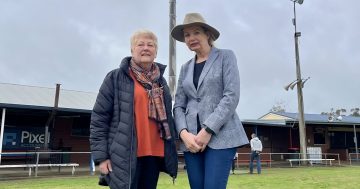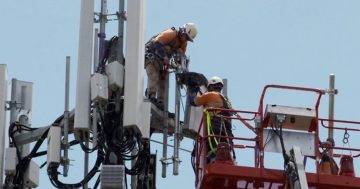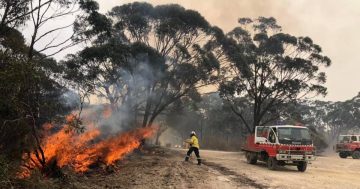
Wednesday’s phone outage did more than cause frustration. It demonstrated a critical problem with Australian telecommunications. Photo: File.
If you’re an Optus customer, Wednesday was a day you’d probably rather forget.
The so-far unexplained outage felled many government services. Triple zero calls from mobiles were unaffected, although emergency calls from landlines were inoperable.
The outage affected up to 10 million Australians and was also characterised by near silence from Optus itself. Communications minister Michelle Rowland made it plain she was not happy with the lack of explanations, reassurance or engagement from CEO Kelly Bayer Rosmarin.
Presumably, the CEO, who was also at the helm during last year’s Optus data breach, was thinking more about the shareholders than the customers when she chose to remain tight-lipped.
So how can what appears to be a fault deep in the core of the system bring down almost half the country’s communications network?
Telecommunications constant Paul Budde says it shouldn’t happen: telcos should have redundancies built in and the capacity to operate parallel, unlinked systems that could be switched in the event of a major outage.
Bushfire-affected areas now have roaming capacity that enables users to switch networks, but this capacity could be extended across all areas to mitigate the effects of other natural disasters, including floods, cyclones or even human-generated events like the Optus outage.
That would, of course, cost money, and in a competitive environment, telcos have resisted the level of investment that would require, resisting suggestions around sharing their infrastructure more widely than they already do.
But how can they justify that stance? Telecommunications are more than a consumer choice or a business option. As Wednesday’s outage demonstrated, they’re of critical importance to the economy, our safety and wellbeing.
And these are not rare events: over the past few years, there have been several mass outages, let alone the constant risk posed by system hacking.
Telstra once operated under the universal service obligation, which was replaced in 2018 with the universal service guarantee, to provide fixed voice services to premises in Australia on reasonable request.
Is it now time for the federal government to step in and ensure all networks are fit for purpose when the consequences of failure can be, literally, life-threatening?
This is an even more urgent issue in regional areas, which are always poorly served by telecommunications networks. When Telstra promises you they cover 96 per cent of Australians, they mean exactly that – people, not geography.
Optus is largely useless in rural Australia, and despite endless rollouts of mobile towers, there are plenty of rural and regional areas where coverage is patchy at best or non-existent at worst.
It’s a recipe for disaster in a changing climate where extreme weather events are predicted to rise and communities increasingly depend on mobile communications.
Paul Budde makes the argument that government responses over the past few decades have been a patchwork of short-term solutions and bandaids: mobile towers, subsidies for boosting coverage and the like.
He suggests a better option would be a levy on telcos, yielding investment that would fund ongoing investment in a system that would be disaster-proof, ensure system maintenance and meet service obligations.
Healthy market competition is a good thing in general. But where lives, wellbeing and community safety are at stake, there has to be a better way to ensure we all stay connected.
Original Article published by Genevieve Jacobs on Riotact.













